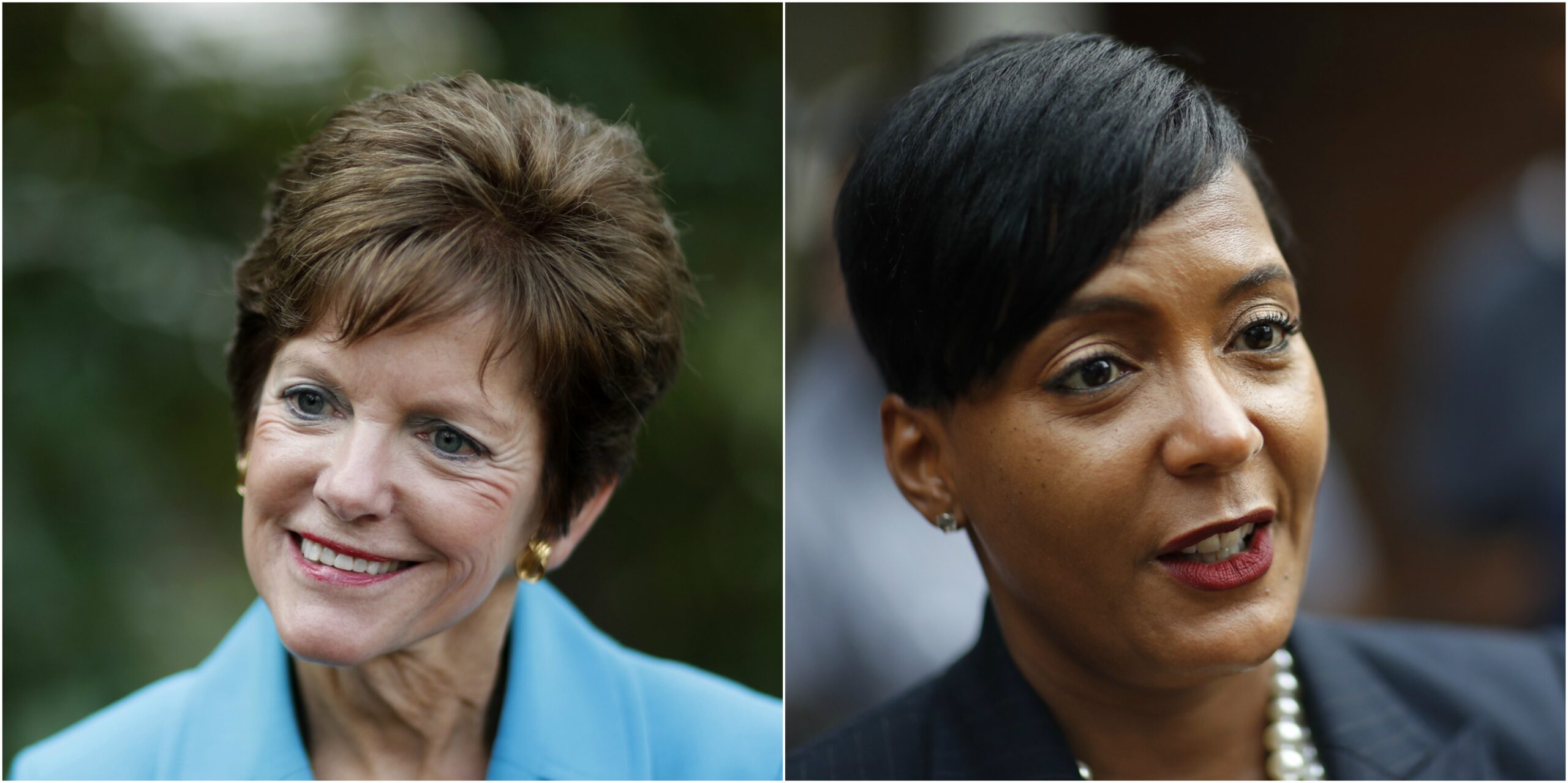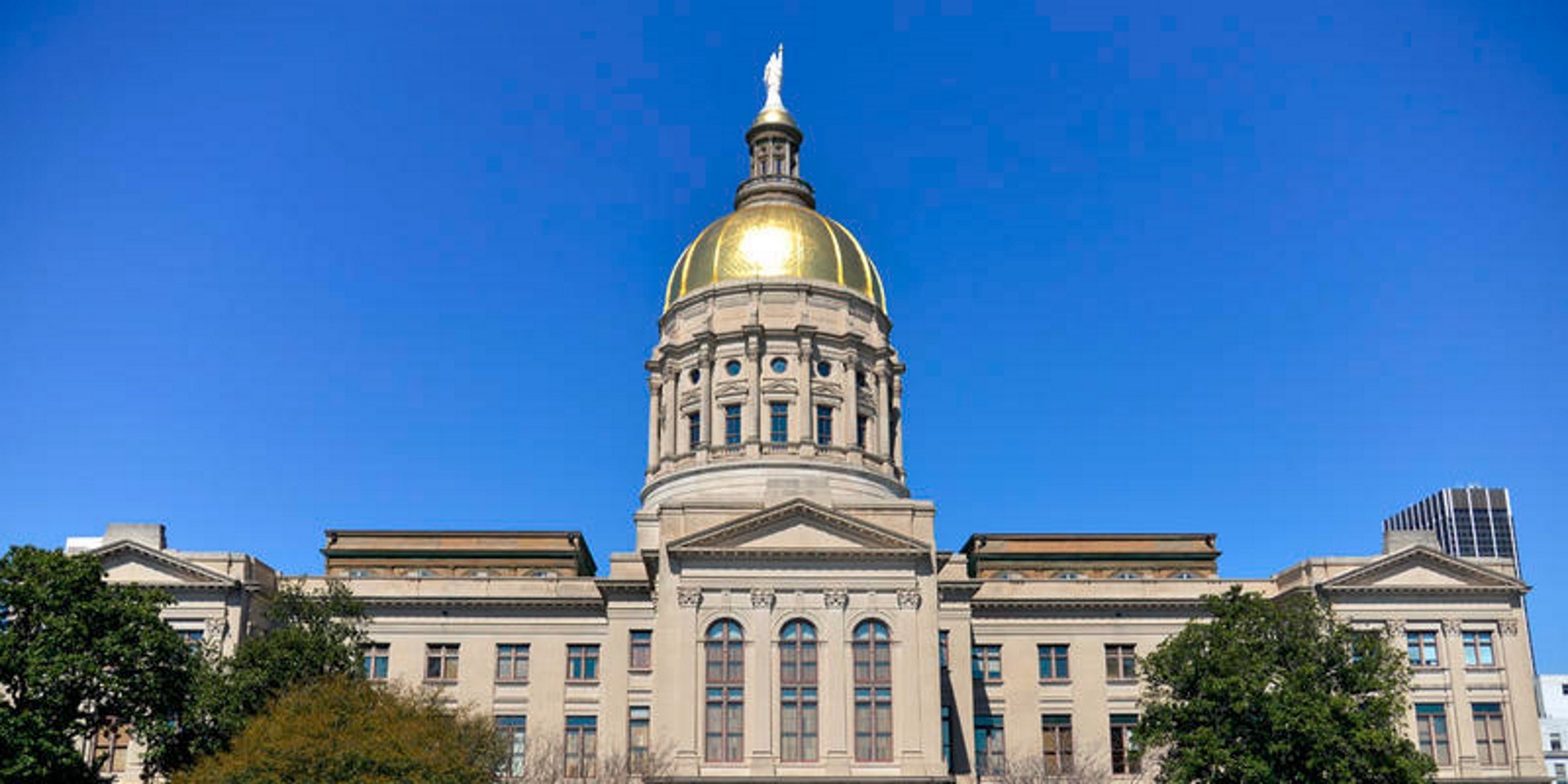Atlanta Mayoral Runoff A Test Of Race, Gender And Grudges

Keisha Lance Bottoms and Mary Norwood vie to be Atlanta’s mayor.
David Goldman / Associated Press
The process of choosing Atlanta’s next mayor has come down to two candidates, one black, one white, after a campaign that laid plain the city’s sore spots of race, gender and political grudges.
Keisha Lance Bottoms and Mary Norwood square off Tuesday in a runoff that may give Atlanta its first white woman mayor ever if Norwood is elected. She would also be its first white mayor in 44 years. Aside from that, the ballot comes just after elections that gave New Orleans and Charlotte their first black women mayors ever, and amid infighting that severely tested Atlanta’s long-dominant black political machine.
Bottoms, 47, was endorsed by former mayor Andrew Young and current, term-limited Mayor Kasim Reed, who beat Norwood in a 2009 runoff by only 714 votes — a large share of them from the black, middle-class southwest quadrant where Bottoms lives.
Norwood, 65, is backed by the city’s last white mayor, Sam Massell, and two prominent black officials: the city’s first female mayor, Shirley Franklin, and former City Council President Ceasar Mitchell — endorsements that many perceived as a public rebuke of Reed, who hotly denigrated Mitchell and Norwood as “losers.”
Democrats have held the mayor’s office in Atlanta since 1879. As always, the race will come down to turnout, which has been historically low.
What black voters do on Tuesday is key. Some blacks, turned off by a city contracting corruption probe under Reed’s watch, are struggling with getting past race to back Norwood. Others look askance at Norwood’s status as an independent, branding her a stealth Republican who seeks to serve City Hall up to Georgia’s otherwise deep-red political apparatus.
It is the type of dilemma that black voters don’t take lightly, said Andre Perry, a Brookings Institution research fellow.
“Being black in America brings a level of awareness around inequity that many other groups are just blind to,” Perry said. “If you’re not of the community, it’s easier to dismiss it. That’s the fear of having white leaders, the idea that they’re disconnected.”
In the past, Atlanta black leaders had a succession plan, according to Kelley Bass Jackson, whose former father-in-law, the late Maynard Jackson, was elected Atlanta’s first black mayor in 1973. This time, she said, there was no clear, hand-picked heir, touching off hard sparring between black candidates that caused “so much anxiety and division among the citizens.”
“Atlanta’s identity has been defined by having a black mayor — and not just any black mayor, but having excellent black mayors who were well-educated, civic-minded and who cared about lifting the race and building collaborations,” Jackson said.
Partisan infighting could also be a factor. Some speculate the race could become a referendum on the popular but prickly Reed, whose public feuds with Mitchell and other black candidates threatened to overshadow Bottoms’ efforts to woo voters.
“People are trying to penalize (Bottoms) because they believe that she is a puppet of the mayor or that she will do everything he tells her to do,” said Kwanza Hall, a former city councilman who ran in the general mayoral election and now backs Bottoms.
Bottoms, a former city councilwoman, was the top vote getter in November and the only black woman on the ballot. She is backed by several state Democrats, including Jason Carter, grandson of former president Jimmy Carter. This weekend, U.S. Senator Kamala Harris of California, a rising Democratic star, is expected to stump for Bottoms in Atlanta.
Harris continuously pumped her fist in admiration of Bottoms in front of around 300 supporters who had just watched a live debate between Bottoms and Norwood during a rally Sunday evening. The senator told attendees she flew into town to tell them the importance of voting for Bottoms on Tuesday.
Harris said the election is important not just for Atlanta, but for the entire country.
“This is moment when so-called leaders are selling division and hate,” Harris said. “So we must fight to be the best at who we are. We must fight that we should be treated as equals. … And we must fight to ensure that Keisha Lance Bottoms is the next mayor of Atlanta.”
Mayor Reed also spoke during the rally.
Norwood lives in Atlanta’s wealthy, heavily white Buckhead enclave but established a reputation as responsive to residents across the city in her role as an at-large councilwoman.
Atlanta, Newark and Washington, D.C. are the only U.S. cities with four decades of unbroken black leadership. Atlanta’s streak could end because of changing demographics — the next mayor inherits a city that is younger and more diverse, with some voters putting less emphasis on the importance of black leadership.
“Atlanta is not a city in distress,” said Emory University political scientist Andra Gillespie. “And (black voters) will still be the largest group. Whomever they prefer as candidate is going to be mayor.”








